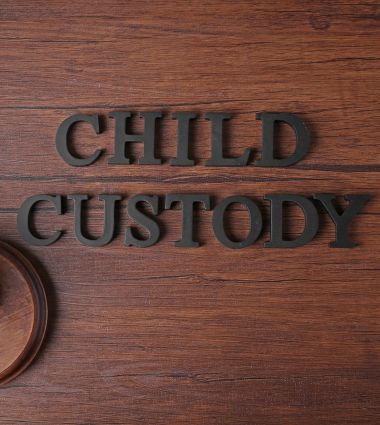What Is The Difference Between Separation And Divorce In Ontario?
In Ontario, the legal processes of separation and divorce are different yet often misunderstood. If you are thinking about ending your marriage, it is really important to understand the difference between separation and divorce under Ontario law.
This article will explain the key distinctions, legal implications, and steps involved in both separation and divorce proceedings. We will also discuss the important role that family lawyers play in guiding couples through these challenging times.
By clarifying these processes, we aim to provide you with basic knowledge to make informed decisions about your relationship status and legal rights in Ontario.
Understanding Separation and Divorce in Ontario
In Ontario, the difference between separation and divorce is necessary to understand —- as both involve the end of a relationship, but they have different legal implications.
Separation: A Precursor to Divorce
Separation occurs when you and your spouse decide to live apart with the intention of ending your marriage. Interestingly —- legal separation in Ontario doesn't necessarily require living in separate homes.
You can be "separated under one roof" if you're no longer living as a couple.
Separation doesn't legally end a marriage. It's more like a transitional period where couples sort out issues like child custody, support, and property division. Many use this time to reflect on their relationship and decide whether to reconcile or proceed with divorce.
Divorce: The Legal End of Marriage
Divorce, on the other hand, is the formal, legal termination of a marriage. It's important to note that divorce is only for legally married couples.
In Ontario, you must be separated for at least one year before you can apply for a divorce unless there are grounds for adultery or cruelty (domestic violence).
The divorce process involves applying to the court. Once granted, you're legally single and free to remarry.
While separation is a personal decision, divorce is a legal process. Both can be complex, emotionally challenging experiences. Seeking professional legal advice can help that your interests are protected throughout this difficult time.
The Key Differences Between Separation and Divorce

It's important to grasp the significant distinctions between separation and divorce for anyone considering the annulment of their marriage.
Legal Status
Separation and divorce represent two different legal states in Ontario. Separation occurs when spouses decide to live apart, without legally ending their marriage.
Divorce, on the other hand, is the formal dissolution of a marriage recognized by law. Divorce and separation are two of the most important distinctions to understand for couples who are in the process of considering their options.
Living Arrangements
During a separation, couples usually live apart but remain legally married. This arrangement allows them time to reflect on their relationship and potentially reconcile.
In contrast, divorce permanently severs all marital ties, requiring couples to build entirely separate households.
Financial Implications
Separation often involves informal financial arrangements between spouses. But, divorce requires a formal division of assets and debts.
The difference between separation and divorce becomes particularly evident when dealing with property, pensions, and other financial matters.
Future Relationships
While separated, individuals are still legally married and cannot remarry. Divorce, however, legally terminates the marriage, allowing both parties to enter into new marriages if they wish.
A professional family lawyer can guide you through either process, assuring your rights are protected and helping you understand the complexities of family law in Ontario.
The Legal Implications of Separation vs. Divorce
The legal implications of separation and divorce in Ontario are different. Let's look at how these two situations differ and what they mean for you.
Separation: A Less Formal Arrangement
Separation occurs when you and your spouse decide to live apart with no intention of reconciling. In Ontario, there's no need for a formal document to separate. Yet, it's wise to create a separation agreement to outline important details such as:
- Division of property and assets
- Child custody and support arrangements
- Spousal support
It’s also important to note that separation doesn't legally end your marriage. You're still considered married in the eyes of the law.
Divorce: The Legal Dissolution of Marriage
Divorce, on the other hand, is a court order that officially terminates your marriage. After a divorce, you're free to remarry if you wish. The legal process of divorce in Ontario generally involves:
- Filing a divorce application
- Serving the application to your spouse
- Waiting for a response or counterclaim
- Attending court hearings if necessary
- Receiving a divorce order from the court
Property and Debt Division
Whether you separate or divorce, the division of property and debt follows similar rules in Ontario. The law recognizes that both spouses contribute to the marriage financially or through other means. As a result:
- Most property acquired during the marriage is normally split equally
- Debts incurred during the marriage are usually shared equally
Separation Process in Ontario
Separation is often the first step towards divorce, but it doesn't necessarily lead to one. Here's what you need to know:
Making the Decision
You've decided your relationship isn't working. Now what?
In Ontario, you don't need any formal documentation to separate. Simply living apart with the intention to end the relationship constitutes a separation. It is advised to have a clear conversation with your partner about your intentions.
Legal Separation Agreement
A separation agreement is not mandatory, but it can be invaluable. This document outlines how you'll handle finances, childcare, and property division during your separation —- it's a good idea to consult the best family lawyer to draft this agreement, so it's fair and legally sound.
Division of Assets and Debts
Unlike divorce, separation doesn't automatically start asset division. But, you can negotiate this in your separation agreement. Be prepared to disclose all your financial information for a fair split.
Support Arrangements
Child and spousal support can be arranged during separation. These arrangements can be included in your separation agreement or determined by court order if you can't reach an agreement.
What is the Process of Divorce in Ontario?
Divorce can be a challenging process, but understanding the steps can make it more manageable. Here’s a simple guide to help you with the divorce process in Ontario.
Step 1: Understand the Grounds for Divorce
In Canada, there are three main grounds for divorce:
- Separation: You and your spouse have lived apart for at least one year.
- Adultery: Your spouse has committed adultery.
- Cruelty: Your spouse has treated you with physical or mental cruelty, making it intolerable to continue living together.
Most people apply for divorce based on separation.
Step 2: File the Application
To start the process, you need to file an application for divorce at the courthouse. You can do this alone (uncontested divorce) or with your spouse (joint application). The application includes details about your marriage, separation, and any children involved.
Step 3: Serve the Documents
If you apply alone, you must serve the divorce papers to your spouse. This means giving them a copy of the application.
You can’t do this yourself – you need someone else, like a friend, family member, or professional process server, to deliver the papers.
Step 4: Responding to the Application
Your spouse has 30 days (if they’re in Canada) or 60 days (if they’re outside Canada) to respond to the divorce application. If they don’t respond within this time, you can proceed without their input.
Step 5: Arranging Custody and Support
If you have children, you need to agree on custody, access, and child support. The court requires a parenting plan outlining these details. You’ll also need to address spousal support if applicable.
Step 6: Division of Property
You and your spouse must divide your property and debts. This includes your home, cars, savings, and other assets. You can do this through a written agreement or, if you can’t agree, by asking the court to decide for you.
Step 7: Finalizing the Divorce
Once all issues are resolved, you can request a divorce order. If the judge is satisfied with your arrangements, they will grant the divorce. You’ll receive a Divorce Order, and after 31 days, your divorce will be final.
The divorce process in Ontario involves several steps, from understanding the grounds for divorce to finalizing the divorce order. By knowing these steps, you can go through the process more smoothly and all necessary details are handled properly.
How a Family Lawyer Can Help With Separation or Divorce?

When facing separation or divorce, a family lawyer can be your best friend and a trusted legal guide. These legal professionals specialize in guiding the complex waters of family law, offering guidance and support during what is often a challenging time for most people.
Legal Assistance in Child Custody and Divorce Cases
Family lawyers are well-versed in the complexities of child custody arrangements and divorce proceedings. They can help you understand your rights and obligations, guaranteeing that your interests—and those of your children—are protected throughout the process.
Whether you're negotiating custody schedules or dividing assets, a reputable family lawyer can provide the expertise needed to reach fair and unbiased solutions.
Collaborative Law Approach
Many family lawyers are trained in collaborative law, a process that aims to resolve disputes without going to court.
In this approach, each party has their own specially trained lawyer. Together, they work to find mutually beneficial solutions, often resulting in less stress and more satisfactory outcomes for all parties involved.
Support for Survivors of Domestic Violence
For those dealing with more sensitive situations, such as domestic violence or human trafficking, family lawyers play an essential role.
They can represent survivors in family court and divorce cases, ensuring their safety and rights are prioritized. These lawyers are equipped to handle the unique challenges that arise in such cases, providing both legal advocacy and emotional support.
Navigating the Difference Between Separation and Divorce
A family lawyer can clarify these distinctions, explaining how each status affects your legal rights and responsibilities.
They can guide you through the process, whether you're considering a trial separation or moving towards a formal divorce, so you make informed decisions every step of the way.
The Role of a Family Lawyer
An Ontario family lawyer can be invaluable during separation or divorce. They can:
- Explain your rights and obligations
- Help negotiate separation agreements
- Guide you through the divorce process
- Represent you in court if necessary
- Advise on legal rights and obligations
- File divorce applications
Always keep in mind, that while separation offers more flexibility, divorce provides a clear legal end to your marriage. Consider your unique circumstances when deciding which path is right for you.
Real Estate
Family Law
Wills & Estates
Immigration
Join Our Mailing List.
Sign up with your email to receive our newsletter and stay informed about the latest legal developments and special offers.



















